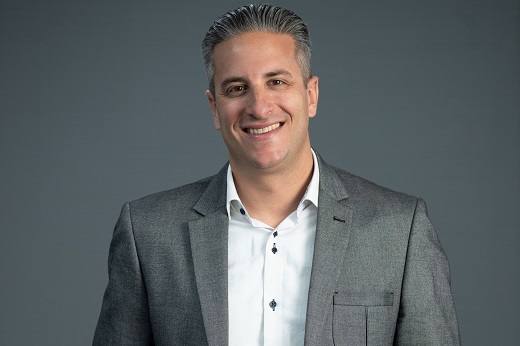
RAPAPORT... After 16 years of working as a manufacturer — 10 of which he spent as manager of Laurence Graff’s South African business Safdico — Ilan Kaplan decided to “turn on its head all the traditional thinking in the diamond industry.” Together with fellow rough-diamond specialist Ravi Gukin and polished-diamond expert Daniel Feigin, Kaplan founded iSparkle in August 2018 — a lean, mean manufacturing operation that bypasses both contract sales and the credit system. The company specializes in manufacturing rough diamonds 10 carats and up, with the resulting polished larger than 3 carats, and its focus is on better-quality and colored diamonds.
Here, the founder and CEO of the Johannesburg-based business outlines the thinking that led him and his partners to try and disrupt the diamond supply chain.
A rock and an easier place
“Having grown up in a De Beers sightholder entity, I could see that in order to maintain your sight, you are in a fixed-term contract with De Beers, and you are bound at certain times of the year to buy the goods De Beers would offer you, at the price they would offer you. Obviously, some of the time, some of the goods were not worth the price. You are then caught between a rock and a hard place. If you take the goods, you lose money, but if you refuse the goods, you might potentially lose your market share.
“I said to myself, as a diamond industry we’ve got to be more bottom-line and profit-driven as opposed to revenue-driven. The diamond business has always been revenue-driven. Diamond companies want to buy as much as possible to sell as much as possible to show big balance sheets and big revenues to the banks. So I thought, we need to move away from being bound to a single supplier or a group of suppliers with a contract where every single month you have to make the cash available.
“Our position in South Africa gives us a huge advantage. If a big rough comes at a reasonable price or a price we can defend, then we sharpshoot: We jump and we purchase it. We are only buying rough diamonds when we see a significant profit can be made from it. We usually buy 10% to 15% of the goods at any tender, but we are not pushing anything. Smaller miners and diggers come to us and offer us the goods because we are on the ground, the tenders run once a month, they can’t wait for two to three weeks to sell the goods, and they need the money quickly.
When opportunity strikes
“The bulk of our clients are in Southeast Asia through Hong
Kong, and the US through New York and Los Angeles. Because we are buying so
opportunistically, we can give our clients a bit of a discount, which usually
comes at two to three points below what the wholesale market is at for these
items. We are not giving any terms. We are selling for cash; there is no 30-days,
60-days credit.
“We also moved away from the traditional system of
factories, as we don’t want to have our own. We feel different factories have
different expertise in certain areas, so we choose where to outsource the
goods.
“The traditional thinking is that you can’t really function
unless you have a consistent supply and big bank facilities. We turned that on
its head: We don’t want consistent supply, we only want to buy goods when a
margin can be made.”
This article was first published in the December issue of Rapaport Magazine. Image: Ilan Kaplan.
|